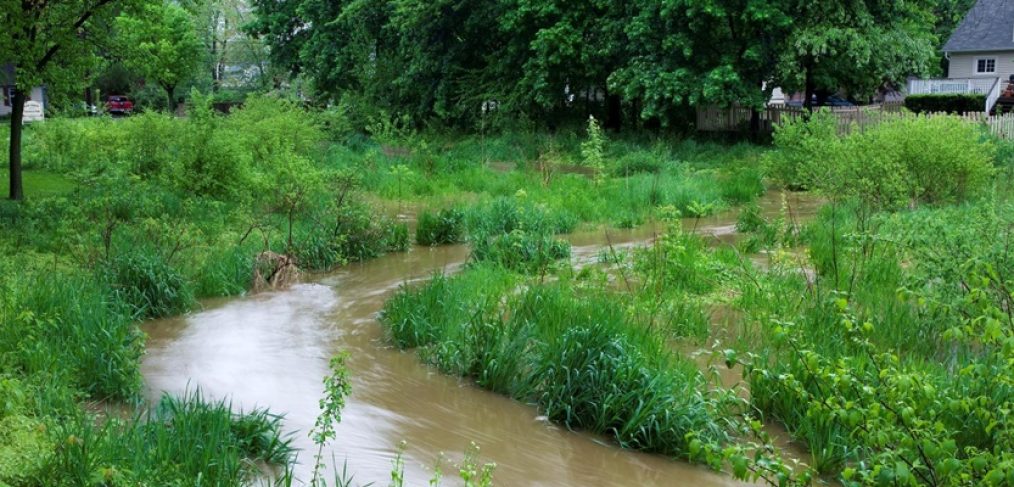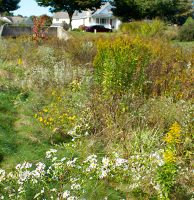
Maintaining Restoration Projects is Key to Long-lasting Success
LandStudies recognizes the importance of long-term maintenance on our restoration and habitat creation projects. Without routine maintenance, installed vegetation may die, invasive plants and weeds can spread quickly, and green infrastructure may fail. Maintenance needs to be a well-thought out and deliberate piece of any project. That’s why we would like to focus on two of our current maintenance projects – New Street Park and LaSalle University – to highlight what maintenance may be needed and how to go about it.
New Street Park
New Street Park is located in Lititz Borough. In 2015-16, LandStudies restored a length of stream within the park to help the community meet its Municipal Separate Storm Sewer System (MS4) requirements. The project also included installation of a meadow and curb bump-outs on Locust Street to help with stormwater runoff infiltration.
On-going maintenance for the park will include:
- Maintenance of small tree and shrub plantings. LandStudies will work with the Lititz Department of Public Works on suggested maintenance techniques, such as pruning and mulching, and site priorities.
- Selective herbicide application to treat and reduce invasive and undesirable species such as oriental bittersweet, shrub honeysuckle, and crabgrass. Applications will occur in the meadow area, around new plantings, and along the stream corridor. Selective string trimming may occur during the growing season, as needed, to control these and other undesired species.
- Maintenance of Locust Street vegetated curb bump-outs includes weeding, as necessary, to reduce competition of undesirable plant species against native plants. If needed, any dead native vegetation will be removed and replaced. The Lititz Department of Public Works will complete sediment and debris removal, and will re-mulch, if necessary.
- Long term management considerations for the Phase 1 portion of the park, which was completed more than 10 years ago, will include a visual site inspection that will consider stream channel stability, aesthetics, vegetation stability, and function.
LaSalle University
LandStudies installed rain gardens at LaSalle University, located in Philadelphia, in 2015. On-going maintenance for the rain gardens will include:
- Applications of herbicide during the growing season to treat and reduce invasive and undesirable species such as thistle, Japanese knotweed, dock, bindweed, and Japanese hops.
- Maintenance of shrub and tree plantings, which includes string trimming around trees and shrubs on the slope of the rain gardens to reduce competition for new plants and to improve aesthetics prior to the start of fall classes.
- Maintenance of herbaceous plantings, which includes string trimming on the bottoms of the rain gardensw after the growing season to reduce standing dead material.
- Applying a fresh layer of mulch around new and replanted trees in lawn areas and in the garden around the LaSalle University entrance sign adjacent to the rain gardens.
LandStudies and staff at Lititz Borough and LaSalle University will continue to monitor the projects and maintain the vegetation and green infrastructure, as needed, to maximize its functionality and longevity. All pesticide application will be performed under the supervision of a Pennsylvania Certified Pesticide Applicator in accordance with all regulations. The chemicals used will be approved by the Environmental Protection Agency (EPA) for aquatic use. This well-thought out and deliberate maintenance effort will better ensure that the design and construction work done by LandStudies will thrive for many years to come, maximizing the benefits to the landowners. No matter who designs and installs your next on-the-ground project, be it a native plant meadow or stream bank restoration, remember that maintenance is not an afterthought, it is essential!


